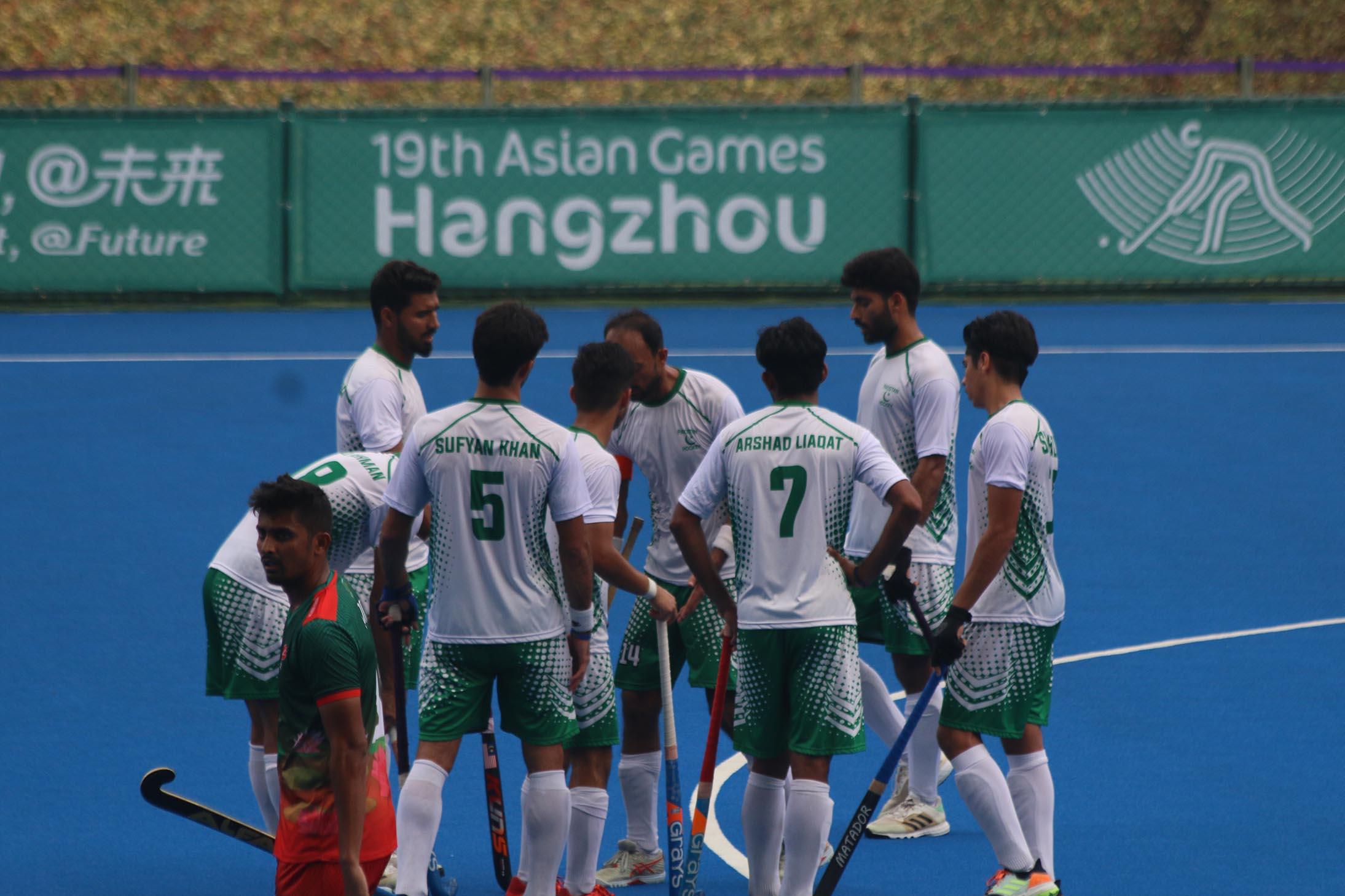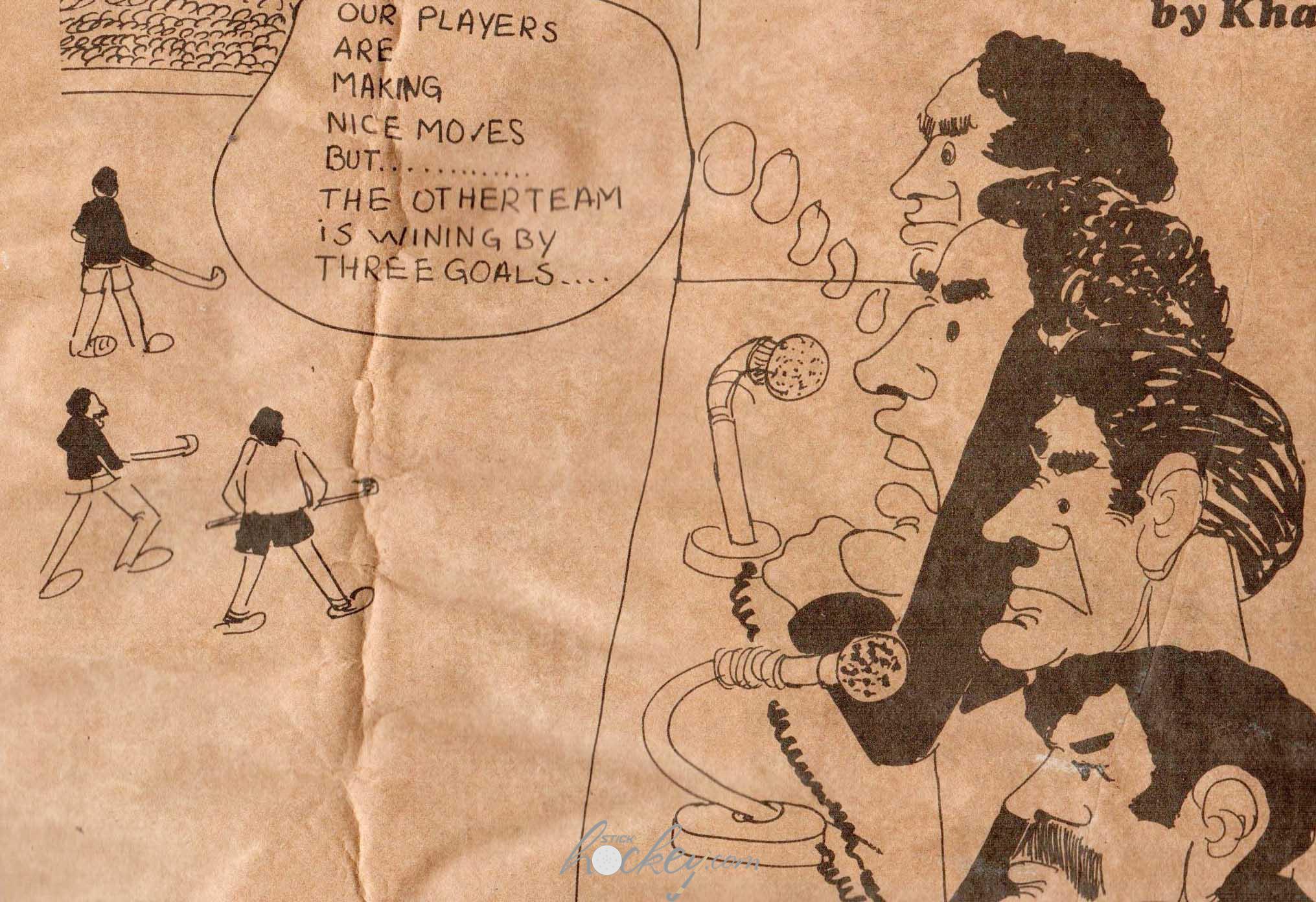ERROL D’CRUZ
The terrorist attack on December 16, 2014, claimed the lives of 134 school children among 150 dead in Peshawar, Pakistan. It was on the day that a motorcade through the city of Lahore was to parade the Pakistan hockey team that had sensationally reached the 2014 Champions Trophy final in Bhubaneswar where they lost to Germany 0-2 in the final.
The heart-wrenching massacre compelled the Pakistan Hockey Federation (PHF) to cancel the motorcade and quite rightly so. Sadly, it deprived Pakistan hockey of showcasing its silver medal when the country’s fortunes in the game seemed to be enduring a freefall for years.
On Saturday, September 30, in Hangzhou, China, Pakistan were handed a 2-10 defeat by arch-rivals India in the 2022 Asian Games. Who would have thought that such a day would arrive for the once-indomitable hockey nation?
Poignantly, had the massacre nine years ago not happened and the motorcade took place, it’s fair to assume the awareness of Pakistan’s achievement would have inspired many a school child to pick up a hockey stick. And, who knows, it would have spawned a generation of keen, eager and ambitious young players – perhaps some of whom would have donned a Green Shirt in Hangzhou on Saturday in a significantly different scenario.
Is all lost for Pakistan in Hangzhou? By no means. They have a match in hand against Japan in a virtual quarterfinal and could draw inspiration if one were to inform them of their coup in Bhubaneswar in 2014 after being routed 2-8 by England.

Helped by the format that enabled the bottom-placed from two four-team pools to progress to the quarterfinals, Pakistan beat The Netherlands 4-2 and then hosts India 4-3 in the semi-final before stretching Germany in the final.
Never say never in sport and Lake Placid in 1980 is testimony to a bunch of American collegians that felled a top-notch erstwhile USSR in the ice hockey final of the Winter Olympics.
But then, ground realities bite. The current Pakistan team is young and naturally inexperienced and sees captain Umar Bhutta ploughing a lonely furrow to rally his charges.
Pakistan’s current plight also accrues from decades of vicissitudes both on and off the pitch. And they stretch back to the mid-1980s. There were challenges before that but the deep-seated crises began showing themselves in the run-up to the 1986 Seoul Asian Games. Hassan Sardar, the iconic centre-forward and top scorer in Pakistan’s glory at the 1982 Mumbai World Cup and 1984 Los Angeles Olympics was not picked for the campaign. It was later revealed that it concerned his protests over promises not kept in terms of reward for achievement — notably a plot of land that the government promised players who clinched gold in Los Angeles.

Pakistan at hockey graphics
Pakistan struggled without the redoubtable Sardar but reached the final where the new force South Korea lay in wait. The Koreans scored an epic 2-1 win in the final and it left Pakistan hockey shell-shocked. With the World Cup in Willesden, England, just days away, Sardar was hurriedly summoned, perhaps after urgent work by real estate agents to help secure him his promised plot of land. But off he went to England but his presence didn’t help too much as Pakistan sank to 11th position, one ahead of bitter rivals India whom they beat 3-2 in a surreal wooden spoon match.
Pakistan, however, remained in the top six bracket and made a sensational comeback in their home World Cup in Lahore four years later where they finished second to The Netherlands after losing 1-3 in the final.
A bronze medal at the 1992 Barcelona Olympics and then a glorious year in 1994 during which they won the Champions Trophy after 14 years followed by the World Cup, their fourth, and first in 12 years suggested the Green Shirts had left their woes of the past decade behind.
A silver at the 1996 Champions Trophy in Chennai, India, seemed to reinforce the notion but a podium finish eluded Pakistan as the millennium drew to a close – fourth at the 2000 Sydney Olympics being their closest to the honour.
A myriad of reasons then caused a nosedive in Pakistani fortunes in the 2000s. Even though the team promised a lot at the 2002 Kuala Lumpur World Cup, it appeared that like India, leaky defences seemed to undermine Pakistan’s performances. It didn’t seem to help that they had in their ranks the world record goalscorer Sohail Abbas whose tally of 348 mostly from drag flicks suggests he’s the best ever in history.
But going with downward trends on the pitch, the security situation that deprived the country of hosting international tournaments – the last being the 2004 Champions Trophy – isolated and suffocated Pakistani hockey.
After the ignominy of finishing 12th and last at the 2010 New Delhi World Cup, Pakistan won their eighth Asian Games gold in Guangzhou, China, but the first in 20 years. The subsequent years brought disaster with failure to qualify for the 2014 The Hague World Cup and the 2016 Rio and 2020 Tokyo Olympics.
Enthusiasm and joy abounded when the FIH awarded Pakistan an Olympic qualifying tournament but withdrew hosting rights for Government interference in hockey affairs.
It has become yet another reason for the prolonged sad chapter in the country’s hockey. Ironically, some allege, that the government’s apathy in the past despite having legendary cricketer Imran Khan as PM, did much to impair hockey in Pakistan. It was argued that the government was displeased with mismanagement by the PHF with President Brig Sajjad Khokhar stopping a lot of flak. The critics did not spare even the iconic Shahbaz Ahmed, the architect of Pakistan’s last World Cup win 29 years ago, who served as secretary.
Whatever the reasons, Pakistani hockey is in a pathetic state evidenced by its continued woeful results and a fall in rankings that had hit a lowly 18. The halcyon days are now footnotes in the dustbin of history with few of the current generation even aware of the fact that the Pakistan cabinet includes 4 World Cup, 3 Olympic, 3 Champions Trophy and 8 Asian Games and 3 Asia Cup gold medals.
The pedigree of the 1960s and 1970s when Shahnaz Shaikh terrorized defences seems to have eroded. Scintillating forwards like Samiullah, Kallemullah, Manzoor Junior, and Hanif Khan are a distant memory as are majestic centre-half Akhtar Rasool and defender Marzoor-ul-Hassan.
The Pakistani reserves were so strong that following a ban of its team after misbehaviour in the lost 1972 Munich Olympic final where (West) Germany won the gold, a second XI reached the semi-finals of the 1973 World Cup in Amstelveen.
In the wake of the country’s youth disenchantment with the sport and the gradual decline of employment vis-a-vis hockey, players who still wield the stick do so in trying circumstances say reports. Michel van den Heuvel, the Dutchman who coached Pakistan for a while, once said that some of the players didn’t have a bed to sleep on.
Unlike India, Pakistan has a National Sport – and it conferred that honour upon hockey. It was long an identity for the country, despite the eventual dominance of cricket in public consciousness. The loss of an identity is crippling be it for an individual or country. Hockey in Pakistan is hanging for survival on a thread. A glimmer of hope provided by the tireless Dar Academy is the saving grace as the sport’s faithful in the country – along with the hockey world — hope for a turnaround, however miraculous it may seem.
